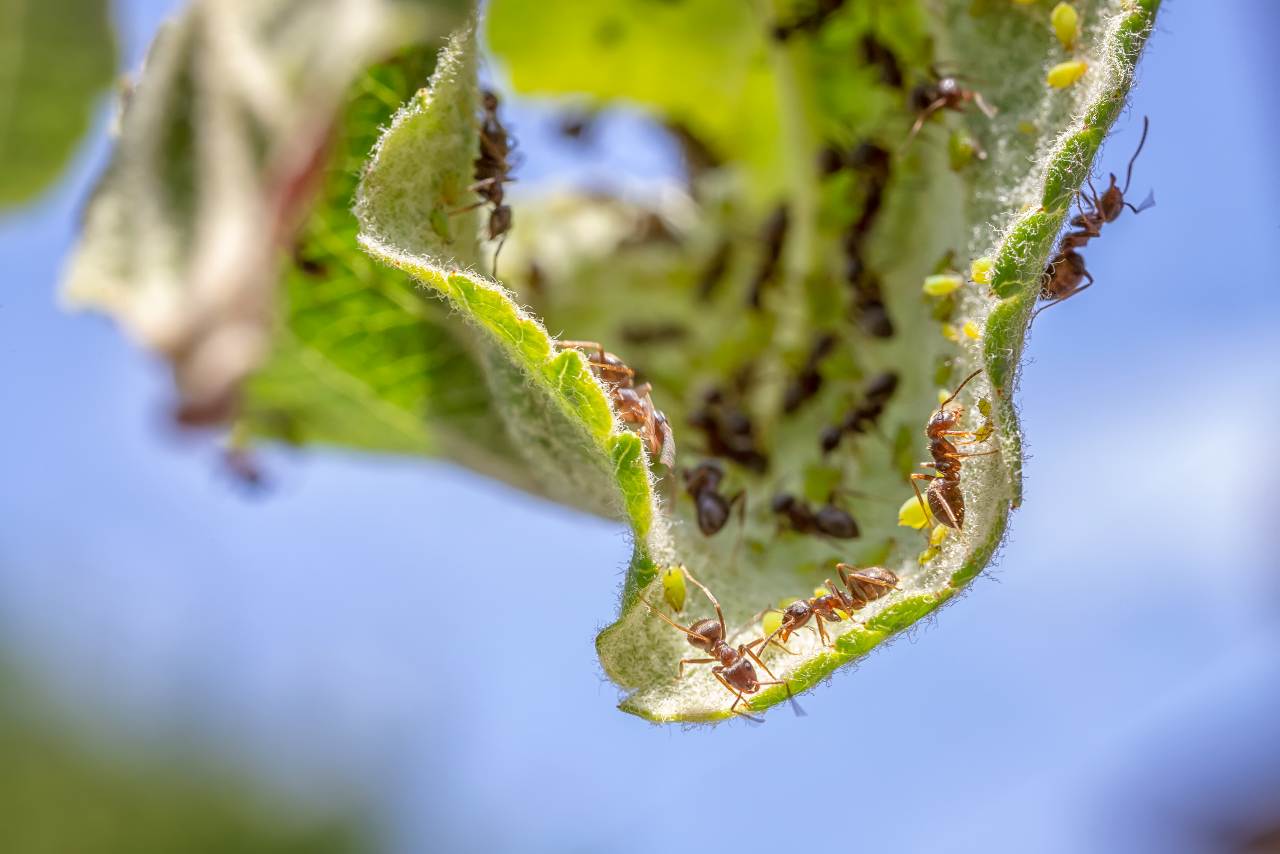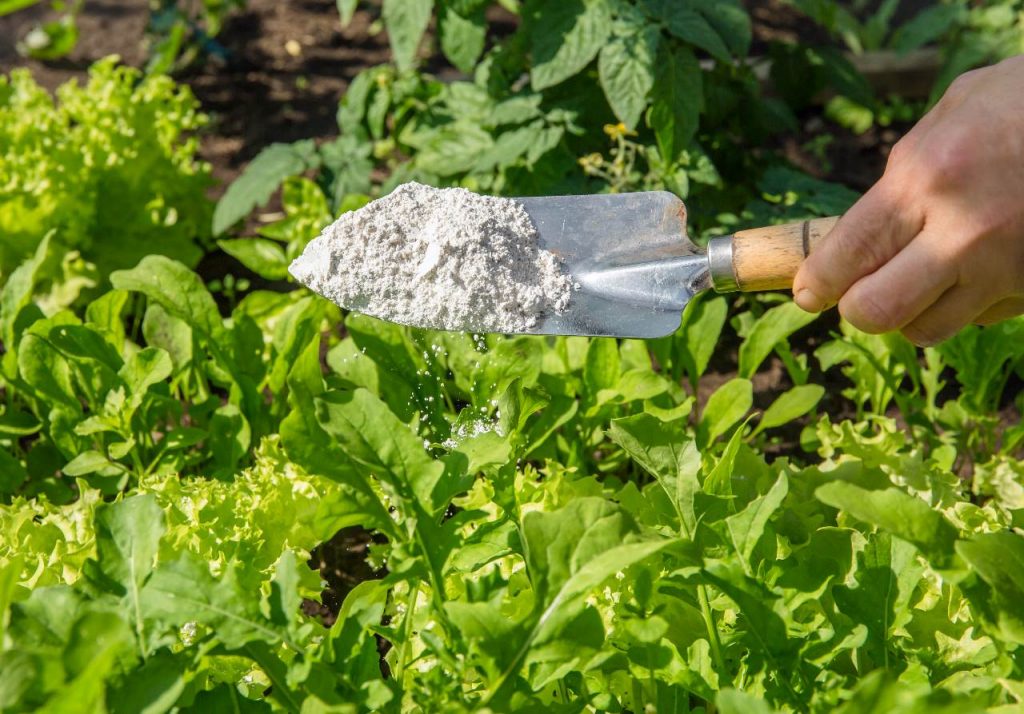How to Get Rid of Ants in the Garden Soil (8 Tips to Try)

Ants are harmless in the garden unless they are attacking your plants. These tiny creatures move in large groups, and getting rid of them can be a headache. But if you’re wondering how to get rid of ants in the garden soil (without killing plants)…now that’s a tougher challenge.
That is why before you start spraying pesticides and other harmful chemicals in your garden, you must be sure that the ants are a menace. However, there are safe methods to eliminate garden ants without harming your plants, which you will learn in this post.
Before we start, it is important to note that there are natural and commercial ant control remedies. Some natural methods can harm the soil, so it is best to use them sparingly. Another important thing you should know is the location of the ant colony in your garden.
Knowing the location will help you determine the best method of getting rid of ants in the garden soil. For example, if the colony is next to your favorite plants, you must use an ant-killing method that will not harm them. However, if the ant hill is in an isolated location in the garden and is still a threat, you can use one of the harsher methods to get rid of them quickly.
Here are the different ways to get rid of ants in your garden.
1. Add Some Spice to Your Soil

The most common spice people use to get rid of ants in the garden is cayenne pepper. Like many other chilies, cayenne pepper has insect repelling properties meaning it will not kill the ants but send them away.
Pro-Tip: You can also use spices and oils to kill spider eggs.
There are two ways to use cayenne pepper to get rid of ants:
- Sprinkle the powder around the ant location
- Make a solution using cayenne pepper sauce or actual cayenne peppers and water and spray it on the ant colony
What you need:
- Spray bottle
- Glass jar
- Cayenne powder, sauce, or actual peppers
- Water
- Dish soap
Follow these steps to make the solution:
- Mix one cup of water with three tablespoons of cayenne pepper sauce.
- Add ½ teaspoon of liquid dish soap into the mixture and mix thoroughly.
- Add the solution to the spray bottle.
- Spray the liquid on any ant colonies you see in the garden.
If you are using actual cayenne peppers, follow the procedure below:
- Boil some water
- Slice some cayenne papers and put them in a glass jar
- Pour the boiling water into the jar and let the mixture sit for 24 hours
- Remove the sliced peppers from the mixture, leaving the spicy water
- Add ½ teaspoon of liquid soap to the mixture and pour the solution into a spray bottle.
- Spray the ant repellant on the ant colonies as needed.
2. Use Food-Grade Diatomaceous Earth (DE) Powder

Using diatomaceous earth powder is the best natural method to eliminate ants in your garden. DE is an insecticidal powder made from plant-like algae, making it a safe option for other plants in your garden. Additionally, DE is packed with minerals like calcium, magnesium, and sodium, which nourish the soil while killing ants.
The procedure for this method is quite simple. The first step is to buy the DE powder from your local agrovet. Once you have it, go to your garden and sprinkle the powder on the ant-infested areas. The powder will kill the ants through dehydration.
3. Use Boric Acid and Sugar

Boric acid is a natural pesticide that only harms plants when used in excess. Besides that, it is the most effective method to get rid of ants in your garden. Here is what you need to do:
- Make a paste using boric acid and sugar
- Apply the paste onto the ant-infested areas and wait
You are mixing boric acid with sugar to attract the ants. After placing the paste on the ant hills, you will notice the worker ants coming out to eat the paste. This is because the sugar in the mixture attracts the ants. Within a week, you will have gotten rid of the ant menace in your garden.
Note that boric acid is not safe for human or animal consumption. Therefore, ensure that your children and pets do not go near it while in the garden.
4. Introduce Nematodes in the Ant Holes
Nematodes, or roundworms, are microscopic worms that are natural predators to ants and other insects. Additionally, they are harmless to the soil and other plants.
However, there is a catch.
You have to ensure that the nematodes touch the ants directly. You have to put the microscopic creatures directly into the anthill.
Once the nematodes are in, they will devour the ants forcing them to look for another habitat or finish them off completely. You can buy these beneficial creatures online or at a nearby garden store. Ensure you follow the instructions on the box for the best results in your garden.
5. Grow Some Insect-Repelling Plants in Your Garden
This method is not a quick fix, but it is a good idea to prevent an ant or pest problem in the future. Of course, chilies are always a good option, but other plants, like lavender, mint, rosemary, marigold basil, etc., also have the same effect.
Insect repelling plants give off a particular smell that keeps ants and other unwanted pests off your garden. The best way to introduce insect-repelling plants in your garden is companion planting. Companion planting is the practice of planting two or more different plants close to each other in the garden so that they benefit from each other.
For this method to succeed, you must know which plants to grow well together. For example, garlic does not grow well near beans. If you are companion planting for the first time, herbs are the best plants to grow among others in your gardens.
Herbs will maintain a good balance of beneficial insects and help repel the bad ones. It might take some time for you to get companion planting right, but it is the best way if you want to introduce or maintain diversity in your garden.
6. Use Ant Bait
Ant bait is a chemical-based insecticide that can kill whole ant colonies in a few days. Ant bait with the active ingredient Spinosad is safe for your garden and strong enough to get the job done. As the name suggests, ant bait is designed to attract the ants so they can ingest the poison and carry some of it into the colony so it can kill the rest.
Here is how you should use ant bait to kill the ants in your garden:
- Identify the location of the ant nest
- Apply the ant bait poison near the ant nest to attract the worker ants
- Worker ants will ingest the poison and carry it back to the nest, killing the colony.
Depending on the seriousness of the ant problem, you can have as many ant bait stations as you want. You can also place the chemical in different parts of your garden to keep ants away from your favorite plants in the garden.
7. Use Ant-Killing Garden Spray
Ant-killing garden spray is an instant method meaning the ants will die immediately after they get into contact with the spray. Like many other chemical solutions, the ant-killing spray is not safe for your crops. However, an ant-killer spray containing a natural bacteria called Spinosad is considered safe for your plants.
Most ant-killer sprays come ready to use. However, ensure you read the instructions on the bottle before applying. These sprays are versatile as you can use them on all types of plants, indoors or outdoors, because it is odorless.
8. Get Professional Help
Finally, if all the above methods do not work, you can hire an expert to help with the problem. A professional will have the knowledge and skill to get rid of all ant colonies and prevent the formation of others in the future. There are several pest control companies online, so pick the best one near you.
TL;DR: How to Get Rid of Ants in The Garden Soil (Without Killing Plants)
If you garden, chances are you’ve dealt with ants at some point. They can be a real nuisance, getting into your plants and ruining all your hard work!
But with some planning and patience, you can get rid of them for good. Here are a few tips on how to eliminate ants in your garden soil:
- Add spice to your soil
- Use food-grade diatomaceous earth (DE) powder
- Try boric acid and sugar
- Introduce Nematodes (Roundworms) into the ant holes
- Grow insect-repelling plants in your garden
- Use ant bait
- Use anti-killing garden spray
- Get professional help
